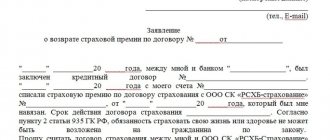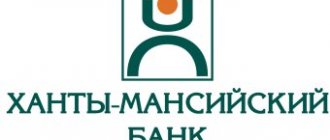Photo: https://pixabay.com/vectors/certificate-diploma-background-1237073/ If a person needs borrowed funds on an especially large scale, then the first thing he does is go to the bank. It is this financial institution that can issue a loan for any need. But has the average person ever thought about how the bank exists, where it gets its money?
Banks receive cash from depositors who keep their savings in deposits. In addition, there is income from borrowers who took out loans and pay interest on them. You can get good benefits from a mortgage - the amount of overpayment is quite significant. Unfortunately, this is a long-term loan, the profit from which drips in small amounts over two to three decades.
What is a mortgage participation certificate?
The Mortgage Securities Act was adopted in 2003, but the MIS program began to develop relatively recently. In 2013, the GFT Capital Management Company issued 20 mortgage pools totaling more than 140 billion rubles.
What is ISU? These are registered securities that do not have a nominal value, but confirm the fact of the owner’s equity participation in the investment.
The mechanism of operation of certificates is reminiscent of mutual funds, with the only difference being that securities have a 100% guaranteed return, while the profit of a mutual fund depends on where exactly the money was invested.
ISU operation scheme
In order not to delve into the tricky economic jungle, let’s look at the IMS operation diagram literally at the fingertips.
So, four parties take part in the “event”.
- Investor - there can be one or more, as a rule, these are organizations (large banks, investment funds and other wealthy companies).
- Management Company (MC) – it is the one that issues securities and carries out management.
- Bank – issues mortgage loans.
- Borrowers – receive a mortgage loan to purchase real estate.
Legal investment mechanism
It's quite complicated, but you can figure it out.
The bank issues mortgage loans. Receives mortgages on real estate as security. If the borrower stops paying the mortgage, the living space can be repossessed and sold, thereby covering his losses. That is why MIS holders will never be left in the red.
In order not to lose their apartments, Borrowers make monthly mandatory payments on the principal debt and accrued interest. The Bank may sell debt instruments to Investors. In this case, he will receive the necessary amount that he distributed to the Borrowers, and can again put it into circulation to issue loans.
It is profitable for the bank to sell debt obligations not one at a time, but as a whole bundle, so all mortgages with similar characteristics are packaged into one pool and sold to the Management Company.
The mortgage pool guarantees a good income for a long time, because mortgages are issued for twenty to thirty years. All this time, the IMS will generate profit without any risk, since it is protected by real estate.
One pool can contain hundreds, or even thousands, of mortgages with a total value of billions of rubles. The Management Company does not have that kind of money, so it involves Investors. For this purpose, securities (MIS) are issued and distributed to Investors in exchange for their money. It turns out that Investors sponsor the Bank with the help of an intermediary - the management company.
The borrower does not even suspect that he is no longer paying his bank, but a third party. In this case, it is the Management Company.
As a result, Investors are provided with a constant income, receiving their money back including interest - this investment option is safe and profitable. The management company takes some remuneration for its intermediary services. The bank quickly returns its money and can use it again for lending. Everyone is happy.
conclusions
Now let's briefly summarize.
How does investing work?
- Borrowers borrow money from the Bank to purchase real estate.
- The bank offers mortgages to management companies for sale.
- Investors purchase a pool of certificates from the Management Company.
- The management company gives the received funds to the Bank.
- The Bank issues mortgage loans to new Borrowers.
How are investments returned?
- Borrowers pay monthly loan obligations, but not to the Bank, but to the management company.
- The Management Company retains commissions for its services, and distributes the remaining amount among Investors depending on the invested share.
Who issues MIS

Mortgage participation certificates with mortgage coverage are issued exclusively by commercial organizations that have the right to manage investment funds, private pension funds, and banks.
The conditions for issuing the ISU are as follows:
- the size of the issue (issue of certificates) should not exceed the value of the mortgage assets;
- the circulation period is equal to the loan term;
- the value of the certificates should not exceed fifty times the total capital of the Management Company (issuer);
- the minimum issue of certificates must be equal to or exceed 100,000 euros at the Central Bank exchange rate.
The fraudulent use of mortgage-backed securities in 2008 led to a global crisis. And all because assets with varying degrees of risk were “packed” into management pools. The financial bubble burst, and a wave of refusals or inability of borrowers to pay their mortgages began across the United States. As a result, it turned out that it was all to blame for “dead” loans issued to insolvent borrowers.
The banks knew in advance that it was impossible to repay such mortgages. These loans were included in mortgage pools, which led to the devaluation of the MIS.
To prevent this from happening in our country, strict control is necessary. Only highly liquid mortgages should be included in pools.
The procedure for recognizing a mortgage certificate of participation in a bank
The agreement for the registration of MIS owners in the form of a registry is concluded only with one of the registrars. The procedure and basis for maintaining records are regulated on the basis of regulations adopted by the executive branch at the federal level. In case of improper fulfillment of obligations to maintain the register, the registrar bears subsidiary liability to the owners of the ISU. The corresponding wording is given in federal legislation, prescribed in the agreement concluded with the manager and concluded by the rules that apply to the management of mortgage coverage.
Advice from Sravni.ru: Mortgage participation certificates are a time-tested and practice-tested tool for developing the long-term lending market. With the help of MIS, the foundations of trust management are laid in the market, the procedure for confirming rights to certain obligations is simplified, and other operations become possible that simplify and speed up work with mortgage obligations of all types.
Terms of trust management
The management company, which is responsible for issuing mortgage certificates, acts as an intermediary between investment participants.
After the release and issuance of the MIS, common shared ownership is formed between the owners of mortgage-backed securities and the management company. The management company performs the function of a trustee.
To do this, an agreement is concluded that specifies the following key points:
- rights and obligations of the parties;
- number of certificates issued;
- the order of their distribution;
- the amount of commission for the manager;
- procedure and timing of payment of funds;
- conditions for convening and holding a general meeting of certificate holders;
- contract time;
- other information in accordance with the requirements established by this federal law.
The Management Company is obliged:
- accumulate funds received from Borrowers;
- transfer payments to Investors;
- monitor the fulfillment of Borrowers’ obligations to repay mortgage loans on a timely basis;
- convene general meetings if at least 10% of certificate holders have expressed a desire to solve specific problems;
- provide monthly information on the size and balance of assets and own commissions.
Mortgage participation certificates - what are they and how can they be used?
Oksana, in accordance with Federal Law dated 04/05/2013 N 44-FZ (as amended on 10/30/2018) “On the contract system in the field of procurement of goods, works, services to meet state and municipal needs”
Article 105. Procedure for filing a complaint
Guide to the contract system. Questions of application of Art. 105
1. Any procurement participant, as well as public associations and associations of legal entities exercising public control, in accordance with the legislation of the Russian Federation, have the right to appeal in court or in the manner established by this chapter, to the control body in the field of procurement, actions (inaction) of the customer authorized body, authorized institution, specialized organization, procurement commission, its members, officials of the contract service, contract manager, operator of an electronic platform, operator of a specialized electronic platform, if such actions (inaction) violate the rights and legitimate interests of the procurement participant.
(as amended by Federal Law dated December 31, 2017 N 504-FZ)
(see text in the previous edition)
2. Appealing the actions (inaction) of a customer, an authorized body, an authorized institution, a specialized organization, a procurement commission, its members, an official of a contract service, a contract manager, an operator of an electronic platform, an operator of a specialized electronic platform in the manner established by this chapter is not is an obstacle for a procurement participant, public association, or association of legal entities to appeal such actions (inaction) in court.
(as amended by Federal Law dated December 31, 2017 N 504-FZ)
(see text in the previous edition)
3. An appeal against the actions (inaction) of a customer, an authorized body, an authorized institution, a specialized organization, a procurement commission, its members, a contract service official, a contract manager in the manner established by this chapter is allowed at any time when a supplier (contractor, performer) is determined ) no later than ten days from the date of posting in the unified information system the protocol for the consideration and evaluation of applications for participation in the competition, the protocol for the consideration and evaluation of applications for participation in the request for quotations, the protocol for the request for proposals, and in the case of determining the supplier (contractor, performer) closed method from the date of signing the relevant protocol. A complaint about the provisions of the procurement documentation, notice of a request for quotation may be filed by any procurement participant, public association, or association of legal entities before the end of the established deadline for filing applications. Moreover, if the appealed actions (inaction) were committed after the opening of envelopes with applications for participation in the competition, request for quotations, request for proposals, after consideration of applications for participation in the auction, appeal of such actions (inaction) can only be carried out by the procurement participant who submitted application for participation in a competition, auction, request for quotations or request for proposals. After the expiration of the deadlines specified in this part, appeal against the relevant actions (inaction) of the customer, authorized body, authorized institution, specialized organization, procurement commission, its members, contract service official, contract manager is carried out only in court.
(Part 3 as amended by Federal Law dated December 31, 2017 N 504-FZ)
(see text in the previous edition)
4. Appeal against actions (inaction) of a customer, an authorized body, an authorized institution, a specialized organization, a procurement commission, its members, a contract service official, a contract manager, an operator of an electronic platform, an operator of a specialized electronic platform if these actions (inaction ) committed during an electronic procedure, a closed electronic procedure, carried out in the manner established by this chapter, at any time during the determination of the supplier (contractor, performer), as well as during the period of accreditation on an electronic platform, a specialized electronic platform, but no later than ten days from the date of posting in the unified information system the protocol for summing up the results of an open competition in electronic form, a closed competition in electronic form, a competition with limited participation in electronic form, a closed competition with limited participation in electronic form, a two-stage competition in electronic form, a closed two-stage competition in electronic form form, an electronic auction, a closed auction in electronic form, a protocol for the consideration and evaluation of applications for participation in a request for quotation in electronic form, a final protocol for a request for proposals in electronic form or a protocol for considering a single application for participation in an open tender in electronic form, a closed competition in electronic form form, a competition with limited participation in electronic form, a closed competition with limited participation in electronic form, a two-stage competition in electronic form, a closed two-stage competition in electronic form, an electronic auction, a closed auction in electronic form, a protocol for considering the application of a single participant to participate in an open competition in electronic form, closed competition in electronic form, competition with limited participation in electronic form, closed competition with limited participation, two-stage competition in electronic form, closed two-stage competition in electronic form, in an electronic auction, closed auction in electronic form upon recognition of the relevant electronic procedure or closed electronic procedure that has not taken place. A complaint about the provisions of the documentation and (or) notice of electronic procedures or closed electronic procedures may be filed by a procurement participant before the deadline for filing applications for participation in such procedures. Moreover, if the appealed actions (inaction) were committed after the start of consideration of applications for participation in an electronic procedure, a closed electronic procedure, an appeal of these actions (inaction) can only be carried out by the procurement participant who submitted an application for participation in an electronic procedure, a closed electronic procedure. If the complained of actions (inaction) were committed during the consideration of the second parts of applications for participation in an open competition in electronic form, a closed competition in electronic form, a competition with limited participation in electronic form, a closed competition with limited participation in electronic form, a two-stage competition in electronic form, a closed two-stage tender in electronic form, an electronic auction, a closed auction in electronic form, when considering applications for participation in a request for quotations in electronic form, a request for proposals in electronic form or when concluding a contract, an appeal of these actions (inaction) is carried out before the conclusion contract. After the expiration of the specified deadlines, appealing against these actions (inaction) of the customer, authorized body, authorized institution, specialized organization, operator of an electronic platform, operator of a specialized electronic platform, procurement commission is carried out only in court.
(Part 4 as amended by Federal Law dated December 31, 2017 N 504-FZ)
(see text in the previous edition)
5. An appeal against the actions (inaction) of an operator of an electronic site, an operator of a specialized electronic site related to the accreditation of a procurement participant on an electronic site, a specialized electronic site, is allowed in the manner established by this chapter, within thirty days from the date of commission of the appealed actions (inaction). An appeal against the actions (inaction) of an operator of an electronic platform, an operator of a specialized electronic platform related to the conduct of electronic procedures is allowed in the manner established by this chapter, within the time limits provided for in Part 4 of this article.
(as amended by Federal Law dated December 31, 2017 N 504-FZ)
(see text in the previous edition)
6. An appeal against the actions (inaction) of a customer, an authorized body, an authorized institution, a specialized organization related to the conclusion of a contract is allowed in the manner established by this chapter, no later than the date of conclusion of the contract.
7. The procurement participant, public association and association of legal entities submit a complaint in writing.
8. A complaint about the actions (inaction) of a customer, an authorized body, an authorized institution, a specialized organization, a procurement commission, its members, an official of a contract service, a contract manager, an operator of an electronic platform, an operator of a specialized electronic platform (hereinafter also referred to as a complaint) must contain:
(as amended by Federal Law dated December 31, 2017 N 504-FZ)
(see text in the previous edition)
1) name, company name (if any), location (for a legal entity), last name, first name, patronymic (if available), place of residence (for an individual), postal address, contact telephone number of the person whose actions (inactions) appeal (if such information is available);
2) name, company name (if any), location (for a legal entity), name, location of a public association or association of legal entities, surname, first name, patronymic (if any), place of residence (for an individual) of the person submitting complaint, postal address, email address, contact phone number, fax number (if available);
3) an indication of the procurement, except for cases of appeal against actions (inaction) of the operator of an electronic site, operator of a specialized electronic site related to the accreditation of a procurement participant on an electronic site, specialized electronic site;
(as amended by Federal Law dated December 31, 2017 N 504-FZ)
(see text in the previous edition)
4) an indication of the appealed actions (inaction) of the customer, an authorized body, an authorized institution, a specialized organization, a procurement commission, its members, a contract service official, a contract manager, an operator of an electronic platform, an operator of a specialized electronic platform, the arguments of the complaint.
(as amended by Federal Law dated December 31, 2017 N 504-FZ)
(see text in the previous edition)
9. Documents confirming its validity are attached to the complaint. In this case, the complaint must contain a list of documents attached to it.
10. The complaint is signed by the person filing it or his representative. The complaint filed by the representative must be accompanied by a power of attorney or other document confirming his authority to sign the complaint.
11. The complaint is returned to the person who filed it without consideration if:
1) the complaint does not meet the requirements established by this article;
2) the complaint is not signed or the complaint is signed by a person whose authority is not supported by documents;
3) the complaint was filed after the expiration of the period provided for in this article;
4) on a complaint against the same actions (inaction), a decision was made by a court or a control body in the field of procurement.
12. The decision to return the complaint without consideration is made within two working days from the date of receipt of the complaint.
13. On the day the decision to return the complaint is made, the control body in the field of procurement informs the person who filed the complaint in writing about the decision made, indicating the reasons for returning the complaint.
14. The decision to return the complaint may be appealed in court.
15. The person who filed the complaint has the right to withdraw it before the procurement control body makes a decision on the merits of the complaint, while such a person does not have the right to file a complaint again against the same actions (inaction) of the same persons.
16. Within two working days from the date of withdrawal of the complaint, the procurement control body sends all interested parties information about the withdrawal of the complaint and places it in a unified information system.
17. The complaint is submitted to:
1) federal executive body authorized to exercise control in the field of procurement over the actions (inaction) of the customer, authorized body, authorized institution, specialized organization, procurement commission, its members, officials of the contract service, contract manager, operator of the electronic site , operator of a specialized electronic platform in relation to procurement to meet federal needs, the needs of constituent entities of the Russian Federation, and municipal needs;
(as amended by Federal Law dated December 31, 2017 N 504-FZ)
(see text in the previous edition)
2) a control body in the field of state defense order for actions (inaction) of the customer, authorized body, authorized institution, specialized organization, procurement commission, its members, contract service officials, contract manager, operator of an electronic platform, operator of a specialized electronic platform in in relation to procurement to meet federal needs, which relate to the state defense order, as well as in relation to procurement to meet federal needs, which do not relate to the state defense order and information about which constitutes a state secret;
(as amended by Federal Law dated December 31, 2017 N 504-FZ)
(see text in the previous edition)
3) the executive body of a constituent entity of the Russian Federation authorized to exercise control in the field of procurement over the actions (inaction) of the customer, authorized body, authorized institution, specialized organization, procurement commission, its members, officials of the contract service, contract manager in relation to procurement to meet the needs of the constituent entities of the Russian Federation and the municipal needs of municipalities located on the territory of the constituent entity of the Russian Federation;
4) a local government body authorized to exercise control in the field of procurement, on the actions (inaction) of the customer, authorized body, authorized institution, specialized organization, procurement commission, its members, officials of the contract service, contract manager in relation to procurement to ensure municipal needs.
18. Information about complaints filed with control bodies in the field of procurement, about decisions made based on the results of consideration of complaints, is included in the register of complaints, scheduled and unscheduled inspections, decisions made on them and orders issued. At the same time, consent to the processing of personal data contained in complaints received by such control bodies is not required for placement in a unified information system.
You can contact any lawyer and enter into an agreement Art. 779 of the Civil Code of the Russian Federation.
Features of mortgage participation certificates

Investing in a mortgage is somewhat reminiscent of investing in mutual funds - mutual funds. The mechanism is the same. The investor gives the money to the Management Company, which invests it in a mortgage pool. The only difference is that this investment is safe, protected from losses and has a guaranteed profit.
True, there is one “but” here. Profitability depends entirely on the discipline of the Borrowers. If they pay accurate monthly payments, then the Investor makes a profit. If the Borrower is unable to repay the mortgage, then his property is seized and sold at a bargain price, just to cover losses. In this case, the Investor is left with minimal income. However, the pool consists of many mortgages; the percentage of insolvent Borrowers is small.
Dividends to MIS holders are usually paid every two months. The amounts may be different if Borrowers do not pay on time, but with favorable developments, Investors receive profits at the level of average mortgage rates, taking into account the withholding of two to three percent on the management commission.
It should also be taken into account that the Investor must pay tax on the income received, which will also affect the final profit.
Features and differences between MIS and other securities:
- this is not a debt document, but a paper certifying the size of the share in the overall mortgage investment;
- mortgage certificates are not issued, which simplifies their issuance;
- all issued and issued certificates are specified in the provisions of the trust agreement;
- certificates have no face value, so they can be in free circulation;
- the certificate can be purchased by a government organization, legal entity or private person;
- The amount of investment is not limited in any way.
Mortgage participation certificates with mortgage coverage
The issuance of an MIS against mortgage coverage occurs in order to record the equity participation of individual entities in the process. Certificate securities also serve as the basis upon which mortgage collateral management processes are based and established. Shared ownership of a general mortgage cover arises precisely at the time of approval. As part of the mortgage management process, it is possible to sign a trust management agreement for a period of 1 to 40 years.
Main risks of MIS and ways to eliminate them
Any investment is a risky endeavor. Investing in mortgage lending has a low level of risk, the investor does not lose anything, and in the worst case scenario, he will return his capital.
However, there are always risks. Let's look at the main ones.
Credit risk
Borrowers, due to any circumstances, may become insolvent, make delays, or even refuse to pay the loan. As a result, the Investor's profit margin decreases.
Another reason for the decrease in profitability is a low-quality pool of mortgages, when, along with highly liquid mortgages, obviously unprofitable ones are included.
To avoid these problems, you must:
- insure the financial risks of the lender - the borrower must take out not only mandatory insurance for the collateral property, but also personal insurance;
- attract a third-party master servicer, that is, an organization that will control and supervise the circulation of funds;
- conduct an audit of the pool at the formation stage, that is, carefully check the mortgages included in the pool for liquidity.
Interest rate risk
To prevent interest rates from changing, you must:
- include only mortgages with a fixed annual rate in the pool;
- indicate in the trust management agreement that only fixed rates are used that do not have variable components.
Counterparty risk
If the Management Company, for any reason, cannot or unilaterally refuses its obligations, then according to the Federal Law (Article 152):
- holders of the ISU at the general meeting have the right to replace the counterparty with another;
- in case of insolvency of the current management company and the impossibility of replacing it with an alternative organization, asset management is transferred to the state corporation VEB.RF (an investment bank 100% owned by Russia).
Certificate liquidity risk
If the IMS cannot be implemented in a short time and with the expected profit, it is necessary to accept this risk and direct all efforts to increase the turnover of securities on the secondary market. It is these actions that AHML (Agency for Housing Mortgage Lending) is actively engaged in.
Rights and benefits of the ISU holder

The owner of the certificates has the right:
- receive payments and use funds issued as dividends at your own discretion;
- demand from the management company appropriate control over the process;
- fully participate in general meetings of ISU holders and make the necessary decisions.
Advantages:
- for the entire period of IMS turnover, only one trust participation agreement is concluded;
- there is no need to draw up numerous additional legal agreements;
- no additional registration of the issue prospectus is required;
- the investor receives income not from specific mortgages, but from the entire pool of loans.
Rights of the holder and benefits of a mortgage certificate
A mortgage participation certificate gives its owner certain rights, namely:
- The holder can receive money received as a result of the actual fulfillment of obligations.
- May expect the organization issuing mortgage certificates to participate in appropriate control over this mortgage coverage.
Mortgage participation certificates also have beneficial advantages for their holders:
- Eliminates the need to create numerous additional agreements.
- They are highly likely to be added to mortgage coverage and bond issues.
- They do not require additional preparation and registration of the issue prospectus, which ultimately saves the cost of creating the mortgage participation certificate itself.
- It is assumed that only one agreement based on trust management will be completed.
There is also a negative point that reduces the reliability of the MIS; this is a fairly common practice of pooling collateral not only from mortgages, but also from some assets that are not directly related to the mortgage. The development of this factor is facilitated by shortcomings in legislation on this issue.









